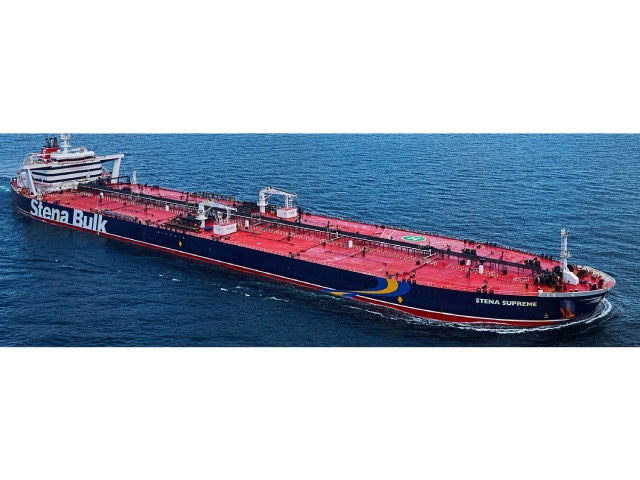The narrow-minded age discrimination of oil tankers counteracts urgent efforts to reach the IMO requirement to reduce CO2 emissions from shipping with 50 per cent by 2050. Decarbonization of the shipping industry is possible, but only if we seize the opportunities available to also improve the environmental performance of existing tonnage, writes Erik Hånell, CEO of Stena Bulk and Kim Ullman, CEO of Concordia Maritime.
Stena is working hard on minimizing greenhouse gas emissions from our operations – and just like many of our competitors, we are making significant progress. This relates both to designing and building new generations of energy-efficient vessels, but also innovations and enhancements to existing tonnage – which are essential to reach the 2050 reduction targets.
But the narrow-minded age discrimination of oil tankers, which we argued strongly against here in 2019, is jeopardizing the entire industry’s global CO2 efforts.
Significant fuel consumption reduction potential on existing fleet
In fact, a lot of the technology for creating a pathway to the 2050 reduction targets is already accessible. Optimization of existing tonnage can reduce the fuel consumption significantly – potentially up to 25 per cent.
However, developing and implementing new technologies is expensive – and unnecessary age restrictions are, without doubt, sub optimizing the willingness to make the necessary financial commitments. Who is willing to invest in a sustainable retrofitting solution if oil companies put unnecessary limitations on tonnage?
Governmental incentives, green finance and investor pressure are enablers that can put necessary activities in motion. Co-ordinating the industrial efforts to reduce CO2 emissions would make research and development of the most promising solutions, such as hydrogen and fuel cells, more cost-efficient. Experiences from successful pilot projects could be turned into reality faster.
Realistic alternatives to diesel exist
In addition, different kinds of fossil-free fuels are being evaluated and they are, to a high degree, compatible with machinery and equipment we already have installed on existing ships. Stena’s biofuel tests have proved that realistic alternatives to diesel exist. Even if they take limited steps towards a major legal requirement, they demonstrate a positive intention and can become stepping-stones towards fossil-free shipping. The main obstacles are availability, standardization, and price.
Create a global level playing field
This leads us to the fact that advancements in efficiency and safety solutions have left the current regulations and restrictions out of date. New rules and regulations must be introduced globally to create a level playing field. Domestic or regional requirements are steep thresholds for global trading. All of us are familiar with IMO’s decarbonization ambitions. Now, we need to know how they will be measured. By ship, by company, by country or some other way?
The challenge requires cooperation between all stakeholders
Decarbonization of the shipping industry is possible – and Stena is ready and willing to shoulder our responsibility on this urgent journey towards a sustainable transport society.
But we cannot manage this huge transition by ourselves. The challenge goes way beyond adapting ships for new fuels and technologies. Reaching stringent emission targets requires cooperation between all stakeholders: authorities, finance institutions, shipping companies and the fuel industry.
Our call to action
Age restrictions belong to the past. Our industry must move away from its legacy and traditional business model; moving focus to ships that are built to last through several cycles.
Start by removing obstacles that go against the sustainability trend, such as age discrimination that prevent a greener development. Then, let us replace a fragmented regulatory and technological approach with clear global targets, industrial cooperation and incentives that put the propellers in motion.
We hope that this post can spark a healthy, constructive dialogue about how we in the shipping industry can become role models for cross-competitor teamwork.
Greater things than our individual businesses and their profitability are at stake. In the long run, mutual efforts to turn the dangerous tide of global warming will be beneficial both for our planet and ourselves.









































